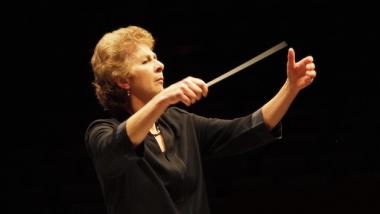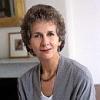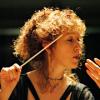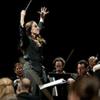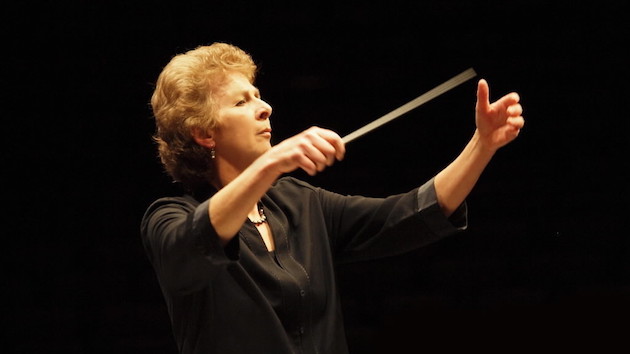
Conductor Jane Glover is in high demand, and with more than four decades of professional conducting in her resume, at 69, she is still passionately enthusiastic about music. Born in Helmsley, England, Glover discovered her passion for music quite early, and studied at St. Hugh’s College, Oxford. She made her professional debut in 1975, and her resume of teaching positions and conducting credits since that time are stellar, including being only the third female conductor to take the podium at the Metropolitan Opera House in New York in 2013, for Julie Taymor’s production of The Magic Flute.
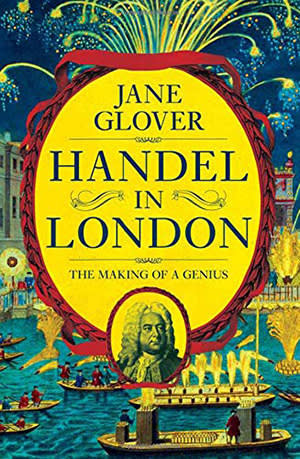 Along with trotting around the globe to conduct operas, symphonies, and more, Glover has been the music director of Music of the Baroque in Chicago, a professional chorus and orchestra devoted to the performance of 18th century works, since 2002. She is also a writer, and her newest book, Handel in London, is literally hot off the press. She will be conducting Handel’s Messiah at the San Francisco Symphony on Dec. 14–15 featuring soloists soprano Ying Fang, mezzo-soprano Elizabeth DeShong, tenor Nicholas Phan, and baritone Joshua Hopkins.
Along with trotting around the globe to conduct operas, symphonies, and more, Glover has been the music director of Music of the Baroque in Chicago, a professional chorus and orchestra devoted to the performance of 18th century works, since 2002. She is also a writer, and her newest book, Handel in London, is literally hot off the press. She will be conducting Handel’s Messiah at the San Francisco Symphony on Dec. 14–15 featuring soloists soprano Ying Fang, mezzo-soprano Elizabeth DeShong, tenor Nicholas Phan, and baritone Joshua Hopkins.
I caught up with her recently by telephone from Chicago, to discuss her career and her life in music.
What inspired you to go into music? Was there a specific moment or event?
I heard my first Messiah when I was 9 years old in Lincoln Cathedral, and that articulated something in me — it basically blew me away. I was so swept up in it, and somehow I knew that I was going to be a musician.
Did you play any instruments before you decided to become a conductor?
I was already playing the piano, and quite soon after that I took up the oboe; I continued my development as a musician while playing the oboe in youth orchestras.
Why did you decide to become a conductor?
I was studying music at university, at Oxford, and in my day, the music courses were very academic. I was singing a lot and playing the oboe, but there wasn’t any performance required in the curriculum. We were all singing and playing concerts for each other, and after a bit, I started conducting — and it just felt right.
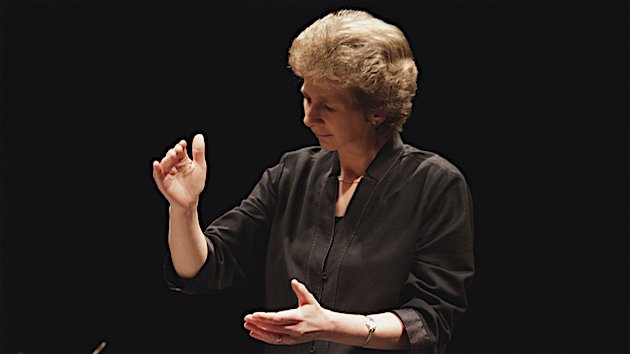
Do you think it was more difficult building a career as a conductor being a woman?
I think it is very difficult building a career as a young conductor, anyway. It’s hard for anybody, but yes, it was hard, and when I started, there were very few women conductors, if any. There are many more now, though still not nearly enough, but we’ve come a long way.
I am very proud of the fact that I’m still here, because I was one of the first. And I am very proud of the young women coming through and having fantastic success and getting jobs at the helms of great orchestras and doing wonderful stuff. And we really shouldn’t be having this conversation — it shouldn’t be that unusual. People have been asking me this question all my life, and it depresses me that it is still necessary to ask it.
I applaud you for being such a pioneer, and it is changing.
It is changing — hooray — but not quite fast enough for me.
You are known as a Mozart specialist. What is it about Mozart that particularly captivated you?
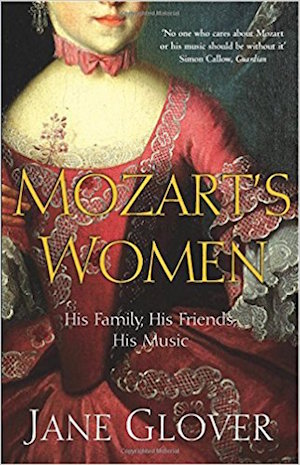 I am very happy to talk about Mozart — he has been absolutely crucial to my whole life. In some way, he answers all the questions for me and he raises me higher than any other. I’m so impressed by every bar he wrote, and I find it incredibly satisfying and invigorating and challenging and rewarding on every level, intellectual and emotional.
I am very happy to talk about Mozart — he has been absolutely crucial to my whole life. In some way, he answers all the questions for me and he raises me higher than any other. I’m so impressed by every bar he wrote, and I find it incredibly satisfying and invigorating and challenging and rewarding on every level, intellectual and emotional.
You have written several books, including one about Mozart, Mozart’s Women, and just recently, one on Handel, Handel in London. How did you become a writer?
I did a Ph.D. at Oxford on 17th-century Venetian opera, and I wrote a very long piece on it, and part of that went into my first book, which was about [Francesco] Cavalli, which I wrote in my 20s for heaven’s sake.
I have always written articles and program notes, and chapters for other people’s books, and then the Mozart book — that sort of niggled at me for a few years before I decided I was going to look at Mozart’s life and work through the people around him, and specifically the women, because they were amazing. It isn’t about them as much as him, but seen through them.
How long did it take you to write Handel in London?
This one took me much, much longer than the Mozart. Handel lived so long, wrote so much music, and was so brilliant. I would go on a summer vacation and think, “I have really got in with the book now,” and then I’d think, “oh my gosh, I’m still only at 1723 and he lived until 1759 — I have such a long way to go!”
And just as I was embarking on it, in addition to doing what I do, which is rushing around the world conducting, I also became opera director of the Royal Academy of Music, at which point I discovered you could do two jobs at once, but not three. And the book got later and later and I missed deadline after deadline. Eventually, I finished it, and it came out in the U.K. about two months ago, and it’s due out here any minute. It was a very lovely experience for me to really look at his life in great detail. I am thrilled with it and I still can’t believe I did it.
Do you think this new knowledge will affect your upcoming performances of the Messiah?
I doubt that anyone would notice the sound has changed. But because I’ve looked so much at how he wrote, and the struggles he had with getting it accepted in London, I suppose it gives me a greater depth and greater pleasure, if that’s possible. I have always adored conducting the Messiah, and I am about to do my 100th performance in Cleveland the week before I come to San Francisco. I think in San Francisco it will be 105 or 106.
You have done it so many times. How do you keep it fresh?
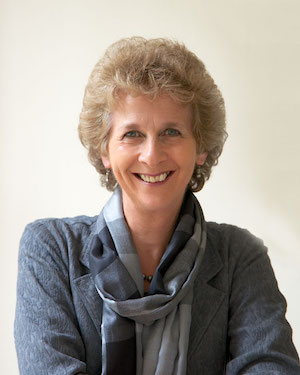
All the performances are different, and I’ve done it with big symphony orchestras like the San Francisco Symphony and the Cleveland Orchestra, with small groups, like Philharmonia Baroque, with small choirs of 30, and large choirs of up to 400. I’ve done it in churches, small halls, and large symphony halls. Wherever you do it, it’s different. Each set of circumstances somehow provides its own parameters.
The thing about Messiah is that every number is a showstopper, and the quality of the music is so consistently excellent, that it never does anything except inspire you to do it as well as you possibly can.
You are so enthusiastic about music and conducting. How do you keep yourself so inspired?
If you can’t, then you shouldn’t be doing it. I am so blessed to be doing something that I absolutely love; I am just so lucky — to be doing great music with great people in great places. For heaven’s sake — working with the San Francisco Symphony, in one of the great cities in the world, with one of the great orchestras in the world — how great is that?
Have you noticed any changes over the years in the professional performing world?
Not really, though it’s always a struggle for any artistic organization to keep going, always requiring funds for the orchestra and artistic administration, and that’s getting harder. And I worry about the education for musicians in schools.
On the other hand, every summer for the past few years, I have been working at Aspen, at one of these wonderful music festivals where young musicians of unbelievable talent, hundreds of them, get together. There are plenty of places like it all over the world, and I take great heart from the fact that there is a tremendous amount of talent coming up.
Do you have any upcoming plans or dreams?
I’ve never really had a plan, but there are pieces that I still want to do before I turn up my toes. For instance, I’ve conducted a lot of Britten’s operas, but I have never conducted Peter Grimes, and I would love to do that. And I do have a sort of wish list ...
But at the moment, I have no plans of slowing down or stopping. I’m just delighted when people ask me to do stuff, and I’m going to carry on doing it as long as I can.
Corrections: Jane Glovers first instrument was piano, not cello. She was opera director at the Royal Academy, not director.

